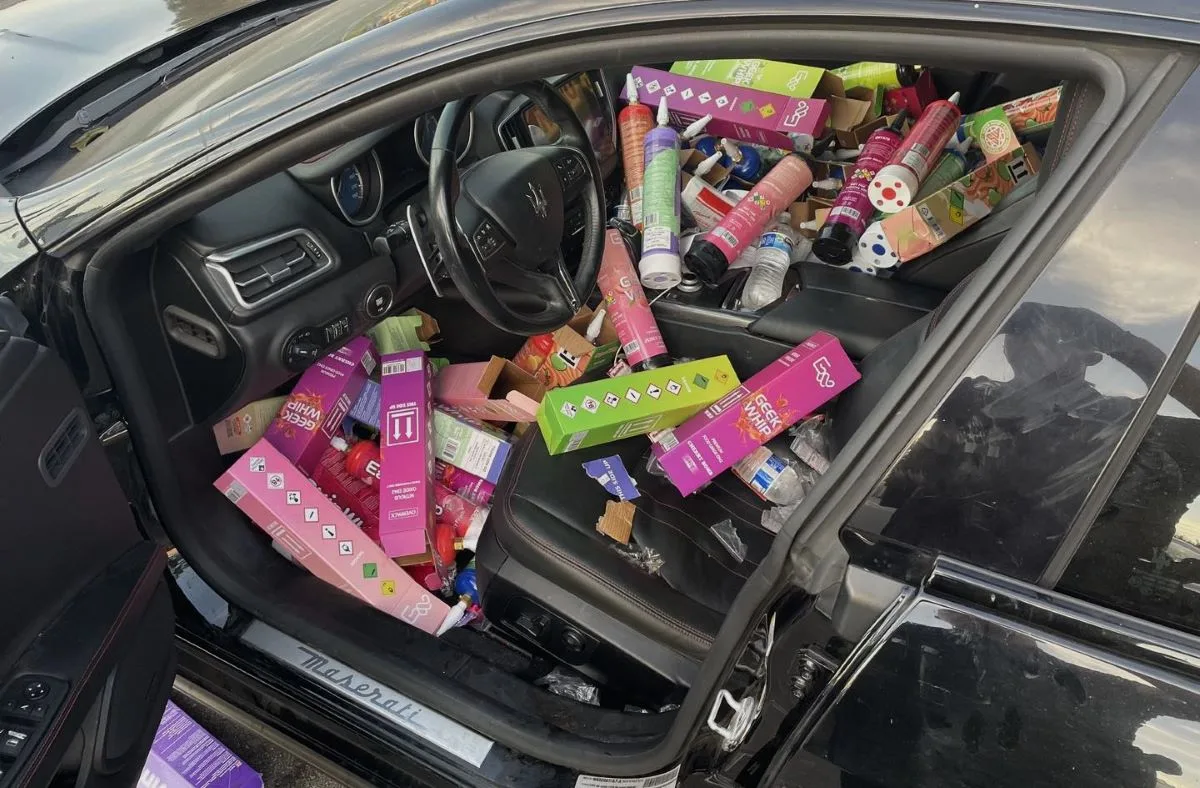Nearly 90 canisters of nitrous oxide were recovered after police officers stopped a vehicle, according to the Tustin Police Department.
The possessed canisers are generally used as an intoxicating inhalant.
The owner of the vehicle, which was a Maserati, was arrested and he will now face justice.
Penalties now faced by the driver
Here’s a summary of the legal and practical consequences the Maserati driver in Tustin may face after being caught with nearly 90 nitrous oxide canisters:
Legal Penalties
Under California Penal Code §381b, possessing nitrous oxide with the intent to inhale it for intoxication is a misdemeanor. The penalties include:
- Up to 6 months in county jail
- Fines up to $1,000
If the driver was also involved in illegal distribution or had prior offenses, the penalties could be more severe, potentially including additional charges and longer jail time.
Impact on Auto Insurance
Although nitrous oxide possession isn’t a DUI, it’s still a drug-related offense. Here’s how it could affect auto insurance:
- Rate Increases: Drug-related arrests can flag the driver as “high-risk,” similar to DUI cases. Insurance premiums may increase significantly—sometimes by 100% or more.
- Loss of Discounts: The driver may lose “good driver” discounts.
- Policy Changes: Insurers can’t cancel a policy mid-term, but they can refuse to renew it or raise rates once the term ends.
- SR-22 Requirement: If the arrest leads to a license suspension, the driver may need to file an SR-22 form to prove minimum insurance coverage, which further increases premiums.
Impact on Employment
A drug-related misdemeanor can affect job prospects, especially in roles requiring trust, responsibility, or professional licensing. However, California’s woke Fair Chance Act provides some protections to this irresponsible driver:
- Employers cannot ask about criminal history until after making a conditional job offer.
- If they decide to withdraw the offer due to a conviction, they must:
- Provide written notice
- Share the background report
- Allow the applicant to respond with evidence of rehabilitation or dispute the report
Despite these protections, some employers—especially in healthcare, education, or law enforcement—may still reject candidates with drug-related records.

